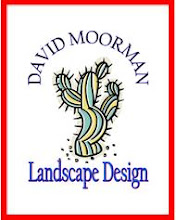The following is from an article that appeared on Landscape Online.com.
Home gardeners and do-it-yourselfer's in the U.S. get most landscaping advice from neighbors and friends—instead of from more authoritative sources, says a University of Minnesota study this month. The finding suggests that most Americans could use more help from landscape architects, contractors and tree professionals.University extension services are perceived as more credible than friends and neighbors, but need to be more convenient, the study also found.
An Information Gap
Staff at University of Minnesota Extension has published results of a survey that concludes that the majority of backyard gardeners get their planting and plant information informally—most often from friends, neighbors and local garden centers.The survey of 1,000 Minnesota gardeners published in the January–March, 2008 issue of HortTechnology showed that although respondents viewed the University of Minnesota and the Minnesota Landscape Arboretum as more credible than garden centers, 78% of respondents indicated that they were most likely to turn to neighbors and friends for gardening advice.
Dr. Mary Hockenberry Meyer, Professor of Horticultural Science and Extension Horticulturist at UM Extension, explained, “We wanted to determine where gardeners got their information and if they think university information is of higher quality than information from garden centers or home centers. We found that university information is viewed as higher quality; however, a large number of people indicated they “did not know” the quality of university information, which surprised us.”
''Talking with Friends''
The survey also indicated that gardeners’ age determined the most likely sources for information seeking. Older gardeners were less likely to use the Internet than younger gardeners. When asked “How do you learn best?,” most respondents said that they had not attended a gardening class in the past year and indicated they learn best from talking with friends. Access to publications containing color photos and illustrations was also highly valued by gardeners who responded to the survey.According to Dr. Meyer, the information from the Minnesota survey can be useful to other universities, extension programs, and arboreta dedicated to providing relevant resources for gardeners. She stated, “Participants in this survey indicated they look for convenient sources of gardening information and, although many felt the land-grant university and arboretum were highly credible and knowledgeable, they were still more likely to use other sources for their gardening information. This poses a challenge to universities and arboreta to use new ways to reach gardeners.”
The complete study is available (for a fee) on the ASHS HortTechnology electronic journal web site: horttech.ashspublications.org


No comments:
Post a Comment